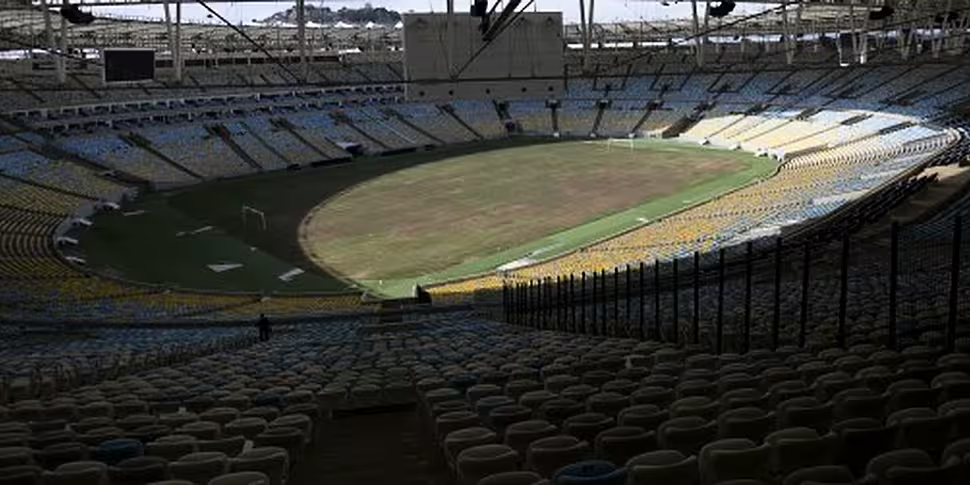On August 21st, 2016, Brazilian sports officials were beaming with pride during the closing ceremony of the Olympic Games.
Fears of the Zika virus and political instability disrupting the greatest sporting show on earth never occurred as Rio witnessed 27 world records get broken in seven different sports. Now just six months later, the Olympic venues have suffered the same dismal fate as those of previous Olympics.
The Maracana Stadium, where the Brazilian men’s football team won a dramatic penalty shoot out to clinch the gold medal, now lies abandoned. The Olympic swimming pool looks like it should be used in a horror movie with the water turning orange due to the contamination of mud. Meanwhile, the tennis venue has been used since the games, but not without controversy. On February 5th fans was left unimpressed after attending a beach volleyball tournament.
"It’s an abandonment, a disregard for public money for the visitors who come here and want to see it used," one spectator, Wanderson Wygers, told Rio newspaper O Globo.
Rio’s failure to continue their legacy is one that is becoming an all too familiar story. Greece spent an estimated €9 billion on hosting the 2004 Olympics, but ten years after venues were left to rot due to economic hardship. Then there is the 1984 Sarajevo Olympics, which has turned into a must-see attraction for die-hard Olympic fans with venues turned into ghost towns. The bobsleigh track is now a covered in graffiti and is a popular venue for BMX riders.
The misfortunes of Rio are one that terrifies the International Olympic Committee (IOC). In recent years more countries have grown weary about creating their own Olympic legacy. The bidding process for the 2022 Winter Olympics saw only two countries (China and Kazakhstan) face off to host the event.
Budapest is the latest city to fall victim to the burden of trying to stage the Olympics. This week they withdrew their bid to host the 2024 Games, leaving Los Angeles and Paris fighting it out to stage the event. The withdrawal came after a campaign calling for a referendum on hosting the Olympics generated more than 250,000 signatures, including several left-wing political parties.
"For Budapest and Hungary the Olympics is a national issue," the government of Hungary said according to national news agency MTI.
"In recent months, the earlier unity has broken down and the issue of the Olympics has turned from a national issue into a party issue. Opposition parties are responsible for this, those who backtracked on their earlier decision [to back the bid]."
Last year Hamburg withdrew their 2024 bid after losing their referendum by 3.2% and Rome pulled out due to financial costs.
According to the 'Oxford Olympic Study' published in 2016, the cost of hosting the Olympics has exceeded the budget at every Games since 1992. The 2008 Beijing Games cost $6.891bn, a modest 2% over budget. In contrast, Sochi's tally of $21.89bn in 2014 smashed their projections by a shocking 289%. The 1976 Montreal Games holds the all-time record at 720% and it took them 30 years to pay off their debt.
"At 156 percent in real terms, the Olympics have the highest average cost overrun of any type of megaproject. Moreover, cost overrun is found in all Games, without exception; for no other type of megaproject is this the case," The report concluded.
With the price so high, why host the Olympic Games?
One answer is the special feeling surrounding the games and the never ending love the public has for it. Last year there was over 26 million visits to olympic.org, more than twice the amount of London 2012. Furthermore, the BBC Sport’s online coverage attracted reached a record 102.3m devices around the world.
The love and passion for the sporting extravaganza is one thing that can’t be disputed. The IOC welcomes candidates for future games with open arms, but more attention must be paid to their own charter.
"To promote a positive legacy from the Olympic Games to the host cities and host countries," the charter states.
Countries are rightfully praised for hosting a successful Olympic Games, but the biggest achievers are those who can turn their two-week display into a lasting legacy. The costs are high, but having the ability to inspire generations of sports stars is something you cannot put a price on.
All eyes are now on South Korea, who will host the next leg of the greatest show on earth in 12 months time. It is hoped that they will once again reignite the Olympic dream.
It is time for the IOC to focus on the sports and not on how fancy the venues look.
Download the brand new OffTheBall App in the Play Store & App Store right now! We've got you covered!
Subscribe to OffTheBall's YouTube channel for more videos, like us on Facebook or follow us on Twitter for the latest sporting news and content.








